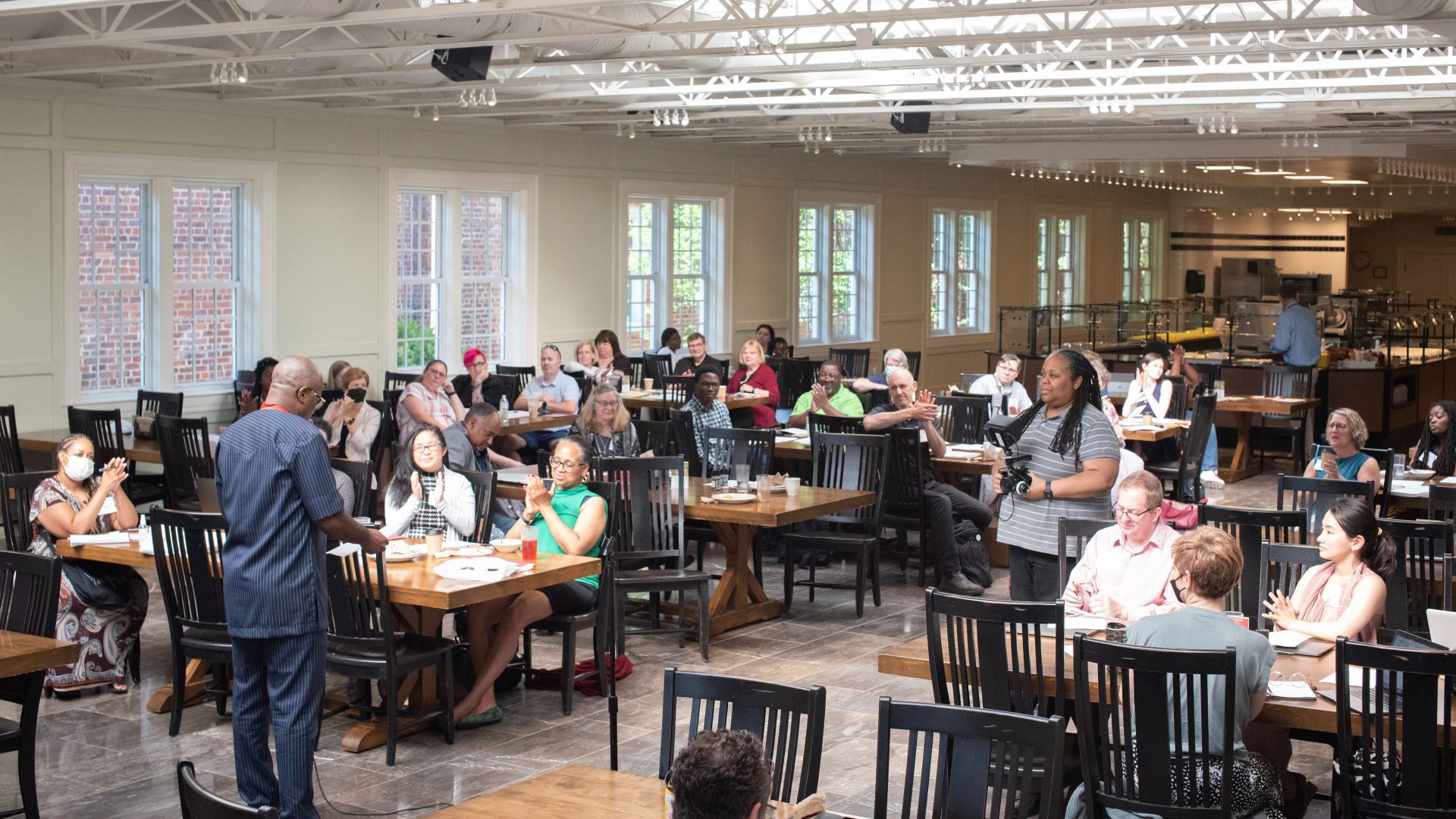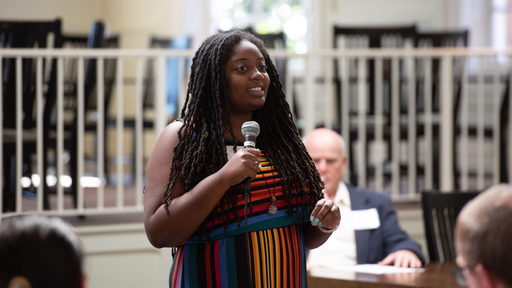
Guilford Dialogues closes with enthusiasm and partnerships to address opportunities.

On the third and final day of Guilford Dialogues on June 10, Guilford College’s ambitious three-day gathering to foster economic inclusion on a local and international level, the format was more open, the talk more uplifting.
But as attendees discussed their excitement and recommendations before departing for their homes locally, across the U.S., and globally, they also found the end was much like the beginning: There is consensus about needs and challenges, but developing solutions is a work in progress.
That’s where Mark Justad, Director of the College’s Center for Principled Problem Solving and Excellence in Teaching, stepped in. Guilford’s Principled Problem Solving model assumes that multiple perspectives are necessary for seeking solutions, and that complex problems like economic inclusion require contextualized, collaborative, and adaptive approaches to affect change.
“This isn’t the ending,” Mark told attendees. “It’s just the beginning.” He asked attendees to list actions or strategies they want to take home with them and implement in the coming days and weeks. Participants then worked within small groups to talk about next steps.
Guilford President Kyle Farmbry said that the College will reach out to attendees this summer about how to implement those next steps. He said the Guilford team will talk with attendees about “sub-issues” of economic inclusion as strategies are developed.
The plan for the Dialogues is to have a conference focused on the related topic of educational opportunity next year and circle back to the next phase of work on economic inclusion in 2024.
Greensboro entrepreneur Tiffany Grant realizes the challenges awaiting her and others implementing strategies that make local economies more inclusive to women, people of color, refugees, and immigrants, but she’s determined to make it happen.
“This is a huge issue not only in the local community, but also internationally as well,” she said. “Sitting in on some of these panels, it really opened my eyes to how all of these pieces — education, child care, funding — all kind of fit together. It’s daunting but it’s change that is doable.”
That change, Dialogues leaders says, starts with the relationships formed this week in Greensboro. Martina Jordaan who leads Community engagement and postgraduate students at the University of Pretoria’s Mamelodi campus in South Africa, is encouraged after meeting so many others with like-minded goals.
“It was really great to talk to people about possible partnerships and networking and possible future projects,” Martina said. “(Economic inclusion) is not something any of us can solve alone so I really enjoyed sitting next to others over a cup of coffee and talk to people and identify things we can do together.”
That notion of partnerships was a recurring theme Friday. The Rev. Hanna Broome told attendees that they took the first step of a long journey this week — not alone but rather together. “If it was easy we wouldn’t be here in this room today,” she said. But she also said the relationships and partnerships formed over the week between panelists and attendees will make the journey easier.
She said Guilford Dialogues speakers and attendees reminded her of an Ethiopian proverb. “When spider webs unite, they can entangle a lion,” she said.
“Our lion today is economic inequality. This week's events helped to weave a much stronger web of collaboration, mutual understanding and shared action across the diaspora. We have a shared moral consciousness. We're fighting a revolution in social and political will, as well as new innovations and greater collaboration across all sectors. We can win this fight.”

